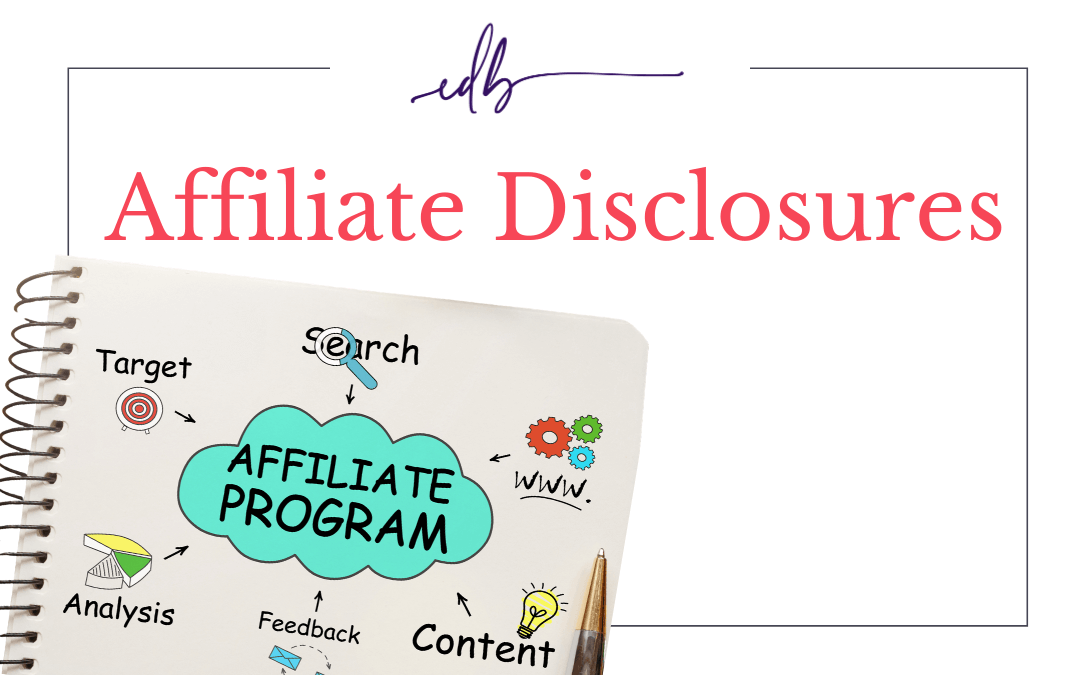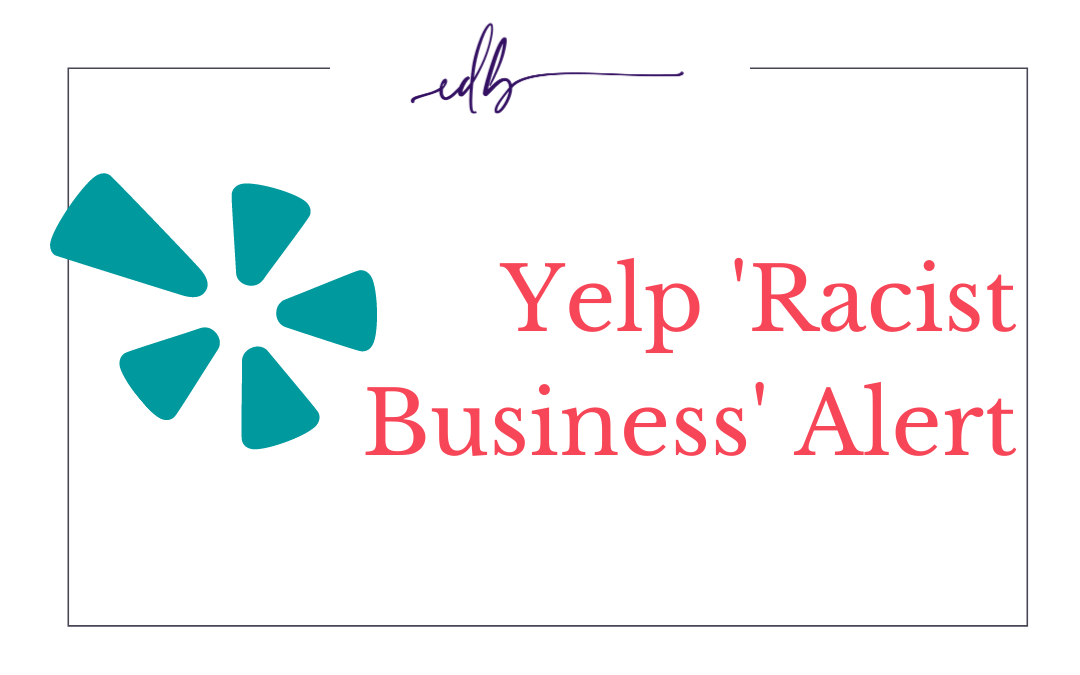Law Nerds Blog - Trending Topics 
Understanding Affiliate Disclosures

Written By:
Emily D. Baker

When you are in business online, in any way, your website is governed by a wide variety of laws. I know what it’s like to be in business online, and I love the online space. You can buy a site, get up a blog, a scheduler a stripe account and you are in business. When you dive into marketing you can run funnels and ads, but all of it is regulated. This post focuses on Truth In Advertising but there are a number of other regulations that apply to how businesses operate online.
The problem with online business is that you can make a ton of money while not paying attention to all these regulations. But, the FTC gets salty fast. Today we are only talking about disclosing material relationships as they relate to Affiliates. But material relationships can also be an employer, a family relationship, or other beneficial relationships.
So let’s break down one of the best ways to start making money online FAST. Affiliates! I love affiliate marketing! You can share things you love and get paid for it! Simple, amazing, fun. But the thing is like any marketing you have to DISCLOSE IT! Yes…you have to. Yes…even you….No it doesn’t matter how much you make if it’s only a discount, etc. I don’t want to hear it…disclose it, it’s the law.
When do you have to disclose an affiliate link?
Always…yup..always. It’s marketing and there is a financial relationship. If you are sharing on social like Instagram and Facebook you can use #affiliate or #ad to disclose the relationship. Some affiliate programs don’t allow you to share those links on Instagram or Facebook so you need to be sure you are abiding by the rules of the FTC, Facebook, Instagram, and the affiliate program you are sharing. It can seem like a lot but both Facebook, and Instagram make it really easy to disclose these things, and making sure the disclosure is in the first few lines ensures you don’t run afoul of the FTC requirements that disclosures are clear and conspicuous. Make them direct, placed in the body of your caption where it can be seen without expanding the text. Finally, don’t bury them in a long line of hashtags.
If you are sharing on your website, or in an email make sure that you are disclosing that the post/email has affiliate links in the post or at the end of the email. It can be as simple as “this post contains affiliate links”.. It can also be a bit cheeky or on-brand for you like “this post contains affiliate links which help support my coffee mug habit, but I only share things I love as much as my coffee”. You simply must disclose the material relationship. It’s my opinion that affiliate relationships are so common that you can use the very simple disclaimer without stating that you receive financial benefits, discounts, products etc. Just like with social media posts this disclosure must be at the top of the post, or within the text ‘above the fold’. For a blog post, this would be above where you have to typically scroll to see the rest of the text
But my Privacy Policy or Terms of Use state that I use affiliate links?
Awesome. Either your Privacy Policy (which is also legally required and a lot of affiliate agreements require them too) or your Terms of Use (always a good idea to protect your content and site) should disclose your site’s policy towards affiliate links. But that doesn’t eliminate the requirement to disclose in a clear way in the content where the links are placed.
Look, Nike says ‘just do it’… The badass lawyer for online businesses reminds you to ‘just disclose it’. Trust me on this one. Also, it’s not a professional look to fail to disclose. Your clients and business you may want to work with can tell if they hit an affiliate link and they will look to see if you had disclosed it. Trust me on this too, when I see entrepreneurs (some of your favorites and some big names) share something I think is an affiliate link I check the tracking code in the link…and if it’s not disclosed it changes how I choose to continue engaging with that person.
If you read this and went…crap I don’t know if I have my legal in order. That’s ok. It needs to get done. Avoiding dealing with the legal in your business won’t make it better (and will generally make it more expensive). A perfect place to start is with your Website Terms and Privacy Policy! It’s an easy way to get your content protected quickly!
LAST UPDATED: July 22, 2020
Keep Reading

Staying Safe Online During a Pandemic.
From Zoom Bombing to security breaches with the SBA, the Coronavirus Pandemic has created the perfect environment for computer crime, identity theft, and general shenanigans. I mean everything is super weird right now, people are stressed and there are over 17 million Americans applying for unemployment benefits, this doesn’t even get into how many businesses are applying for SBA loans through either the PPP program or the EIDL.

Taylor Swift, Sexual Assault & Miss Americana
I wouldn’t consider myself a Taylor Swift fan, however, Miss Americana is a must-watch in my book. In Miss Americana Taylor Swift goes from candidly talking about body image and seeking external validation to her sexual assault case. Taylor shares an unrestricted look into her experiences without veiling her emotions behind lyrics, and I am here for all of it.

Yelps ‘Racist Business' Alert
Law Nerds Blog - Trending Topics Gabby Petito Triller vs H3H3 Erika Jayne Article Outline Per Yelp's Blog Resources Episode 55 of The Emily Show Emily D. BakerYelp has taken a broad step. Some praise the social activism, many wonder how this will impact affected...
Law Nerds Unite
Craving more stories just like this one? Join the Law Nerds community on Patreon.

Law Nerd Shop
Check out the shop and rock your Law Nerd pride with mugs, shirts, hoodies, stickers, and more.

